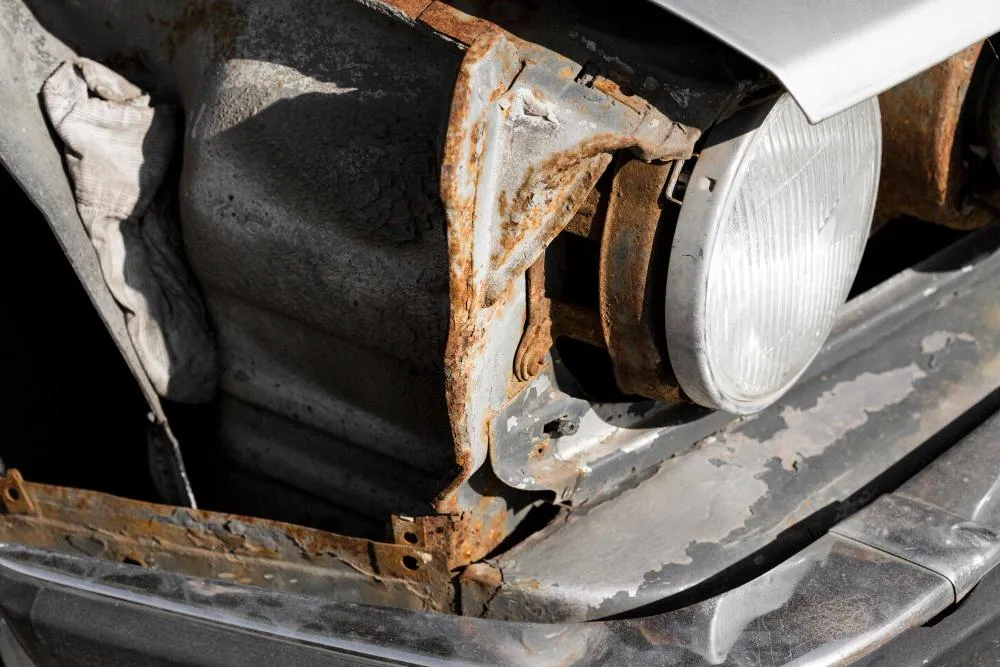
How to Prevent and Repair Paint Oxidation for Florida Cars
If you live in Florida, you’ve likely seen cars with faded, chalky, or peeling paint — often on the roof, hood, or trunk. That’s paint oxidation at work, caused by relentless sun exposure, salty coastal air, and humidity.
Left untreated, oxidation can spread quickly, dull your car’s appearance, and eventually damage the paint to the point where full repainting is needed. This guide will show you how to recognize early signs of oxidation, prevent it from happening, and repair it before it becomes a major (and expensive) problem.
Understanding Paint Oxidation
Paint oxidation happens when the protective oils and clear coat on your vehicle’s paint break down due to UV exposure, heat, and environmental contaminants. The paint surface becomes porous, dull, and chalky, losing its shine.
Here are the most common causes in Florida:
Intense UV rays – Florida sun accelerates clear coat breakdown
Salt in the air – Coastal environments speed up chemical reactions that degrade paint
Heat and humidity – Expands and contracts paint layers, leading to cracking
Neglect – Infrequent washing and waxing leave contaminants on the surface
Recognizing it early is key — the sooner you act, the easier it is to restore your car’s appearance.
Signs of Paint Oxidation
To spot oxidation before it gets too bad, look for these warning signs:
Faded or dull color, especially on horizontal panels
Rough, chalky feel when you run your hand over the paint
Loss of shine, even after washing
White, powdery residue that rubs off when you wipe the surface
Peeling or flaking clear coat (a sign of severe oxidation)
Steps to Prevent Paint Oxidation
Preventing oxidation is much easier (and cheaper) than repairing it later. Here’s how to protect your car’s finish in Florida’s harsh climate:
Wash Regularly
Remove dirt, salt, and debris that can break down clear coat. Aim for at least twice a month, more if near the coast.Use Quality Wax or Sealant
A good wax adds a protective layer that shields against UV rays and contaminants. Reapply every 2–3 months.Consider Ceramic Coating
A professional ceramic coating offers long-term protection and reduces the need for frequent waxing.Park in the Shade or Covered Areas
Garaging your car or using a car cover reduces direct sun exposure.Avoid Harsh Cleaners
Use pH-balanced car soap. Household detergents can strip protective layers and accelerate oxidation.
How to Repair Paint Oxidation
If your car already has oxidation, here’s what you can do to restore it:
Step 1: Thorough Wash
Clean the car to remove contaminants before starting any restoration process.
Step 2: Clay Bar Treatment (If Needed)
Use a clay bar to remove embedded particles that washing can’t remove.
Step 3: Light to Medium Polishing
Use a dual-action polisher with a compound or polish designed to cut through oxidized layers. Work in small sections.
Step 4: Apply Sealant or Wax
After polishing, protect the freshly exposed paint with wax or sealant to prevent re-oxidation.
Step 5: Professional Repainting (For Severe Cases)
If the clear coat is peeling or oxidation has penetrated too deeply, professional sanding and repainting may be required. A body shop like Express Auto Paint Repair can restore the finish to like-new condition.
FAQs About Paint Oxidation
Can I fix paint oxidation myself?
Yes, light oxidation can often be removed with polishing products at home. Severe oxidation usually needs professional attention.How often should I wax my car in Florida?
Every 2–3 months for traditional wax, or once every 6–12 months for a professional ceramic coating.Will oxidation come back after polishing?
Yes, unless you protect the surface with wax or coating. Think of polishing as resetting the clock — not a permanent solution.What’s the difference between oxidation and clear coat failure?
Oxidation is dull, faded paint. Clear coat failure shows peeling or flaking and requires repainting.Does insurance cover paint oxidation?
Typically no. Oxidation is considered wear-and-tear, not a sudden accident-related event.
Conclusion
Florida’s climate is tough on car paint, but with regular care, you can prevent oxidation from dulling your car’s finish. Wash often, protect with wax or ceramic coatings, and park in the shade when possible. If oxidation has already set in, early intervention with polishing can save you from the cost of a full repaint.
Express Auto Paint Repair in Lake Worth Beach specializes in paint restoration and refinishing for Florida cars. Whether you need light oxidation removal or a complete repaint, our team can bring your car’s shine back. Contact us today to schedule an inspection and protect your car’s finish.